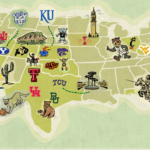The year she graduated, Nubia Peña BA’06 JD’16 was named one of the top 25 law students in the country by National Jurist magazine. She was appointed by Gov. Gary Herbert in 2019 to be the director for the Utah Division of Multicultural Affairs and was recently tapped to serve in a concurrent role as Senior Advisor of Equity and Opportunity. For the last year, she’s helped oversee the Multicultural Advisory Committee of Utah’s COVID-19 response, which brings together dozens of diverse partners weekly to address some of the pressing concerns for Utah’s historically underserved populations.
What is the next challenge for Utah?
It’s vaccinations. We have to make sure no family is left behind and work with partners to ask questions that address different levels of access. Can people get them without a driver’s license, will interpreters be available? Can people without internet access call to make an appointment? Is the information distributed in plain language, is transportation access considered? Does the plan address concerns held by many who are historically distrustful of the government?
How has the state response been?
Because of preexisting disparities in health care access, communities of color were hit disproportionately hard. We’re now discussing equity in a way that has not always been the practice. Instead of approaching everyone the same way, the conversations are now considering what help we can provide that is culturally inclusive and how we effectively reach those most in need so that we can all recover from this together. I’m so grateful for the shift in this direction, and it makes me immensely hopeful for the future.
What comes next?
Utah is unique, and the values of the people in this state genuinely are to help one another. As we consider what comes next, we have to continue to think about our most vulnerable—those with less access, and people who have to navigate socio, cultural, economic, and systemic barriers. If we are to rebuild stronger than before, we have to consider the people and communities that have largely existed at the margins and center their voices.



Comments
Comments are moderated, so there may be a slight delay. Those that are off-topic or deemed inappropriate may not be posted. Your email address will not be published. Required fields are marked with an asterisk (*).